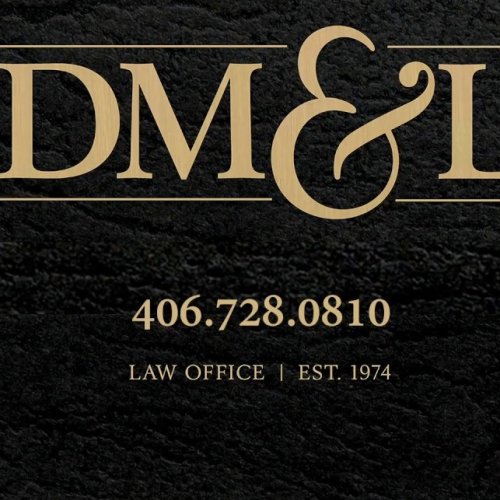Best Bail Bond Service Lawyers in Missoula
Share your needs with us, get contacted by law firms.
Free. Takes 2 min.
List of the best lawyers in Missoula, United States
About Bail Bond Service Law in Missoula, United States
A Bail Bond service provides financial assurance to the court that the accused, or defendant, will appear in court when summoned. It allows the accused to be released from jail during the course of their trial. In Missoula, as in the rest of the U.S., the Bail Bond service is regulated by state and local laws. The service is usually rendered by a Bail Bondsman who charges a fee (typically 10% to 15% of the bail amount) for this service.
Why You May Need a Lawyer
While not always necessary, it may be helpful to have legal guidance in situations involving large bail amounts, complex cases, or when the accused has previous convictions. A lawyer can provide guidance on the bail process, negotiate for a lower bail amount, or argue for the release of the accused on their own recognizance. Additionally, a bail bondsman must follow legal procedures and restrictions, and having a lawyer can help safeguard your interests.
Local Laws Overview
In Missoula, and Montana as a whole, bail bond agencies must be licensed by the state. They should also adhere strictly to all rules regarding bail proceedings and contracts. For instance, a bail bondsman cannot solicit business in courtrooms or jails. There are legislations in place that sets the maximum charges for bail bond services, typically at 10% to 15% of the bail amount. Additionally, a defendant has a right to a bail hearing, and is protected against excessive bail under the 8th Amendment of the United States Constitution.
Frequently Asked Questions
What is the role of a bail bondsman?
A bail bondsman provides a financial guarantee to the court that the accused will attend all required court proceedings. The bondsman charges a fee for this service which is usually part of the total bail amount.
What happens if the accused does not appear in court?
If the accused does not appear in court, the bail bond is forfeited. In such cases the bondsman can hire a bounty hunter to locate and return the accused to custody.
Can the bail amount be negotiated?
Yes, a lawyer can argue for a reduction in the bail amount during the bail hearing. The judge will then decide whether to adjust the bail based on factors such as severity of charges, criminal history, and risk of flight.
What are the consequences of not paying a Bail Bondsman?
If you fail to pay the Bail Bondsman, they have the right to recover the amount from you, this could involve legal action. Additionally, the bond can be revoked and the accused could be returned to jail.
Do bail bondsmen accept payment plans for their fee?
Some bail bondsmen may offer payment plans however this is entirely up to the discretion of the individual bail bondsman. It's important to discuss payment terms before agreeing to a bail bond contract.
Additional Resources
The Montana Department of Insurance regulates bail bond services in Missoula and offers resources on its website. The American Bar Association also has online resources with useful information about the legal perspective on bail bonds. The local legal aid office can provide assistance if you cannot afford a lawyer.
Next Steps
If you or someone you know is facing the need for a bail bond service, consider taking these steps: 1. Understand the bail process and the responsibilities involved. 2. If considering a bail bond service, ensure they are licensed and reputable. 3. Consult a lawyer if the case is complex, the bail amount is high, or if the accused has previous convictions. 4. Be prepared for a bail hearing if needed. 5. Understand and agree on payment terms before entering into a contract with a bail bondsman.
Lawzana helps you find the best lawyers and law firms in Missoula through a curated and pre-screened list of qualified legal professionals. Our platform offers rankings and detailed profiles of attorneys and law firms, allowing you to compare based on practice areas, including Bail Bond Service, experience, and client feedback.
Each profile includes a description of the firm's areas of practice, client reviews, team members and partners, year of establishment, spoken languages, office locations, contact information, social media presence, and any published articles or resources. Most firms on our platform speak English and are experienced in both local and international legal matters.
Get a quote from top-rated law firms in Missoula, United States — quickly, securely, and without unnecessary hassle.
Disclaimer:
The information provided on this page is for general informational purposes only and does not constitute legal advice. While we strive to ensure the accuracy and relevance of the content, legal information may change over time, and interpretations of the law can vary. You should always consult with a qualified legal professional for advice specific to your situation.
We disclaim all liability for actions taken or not taken based on the content of this page. If you believe any information is incorrect or outdated, please contact us, and we will review and update it where appropriate.








